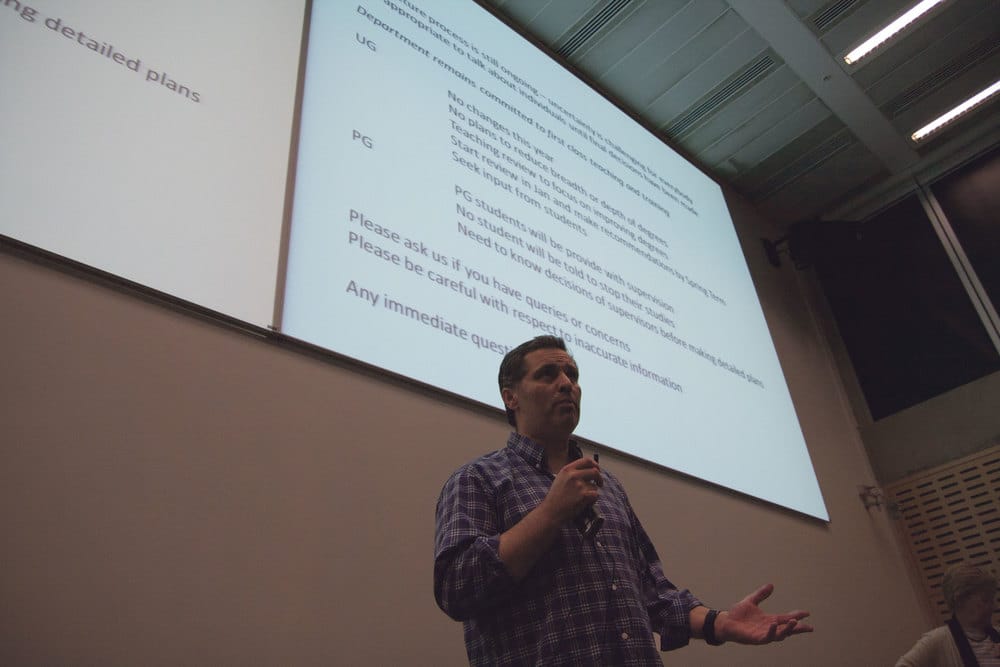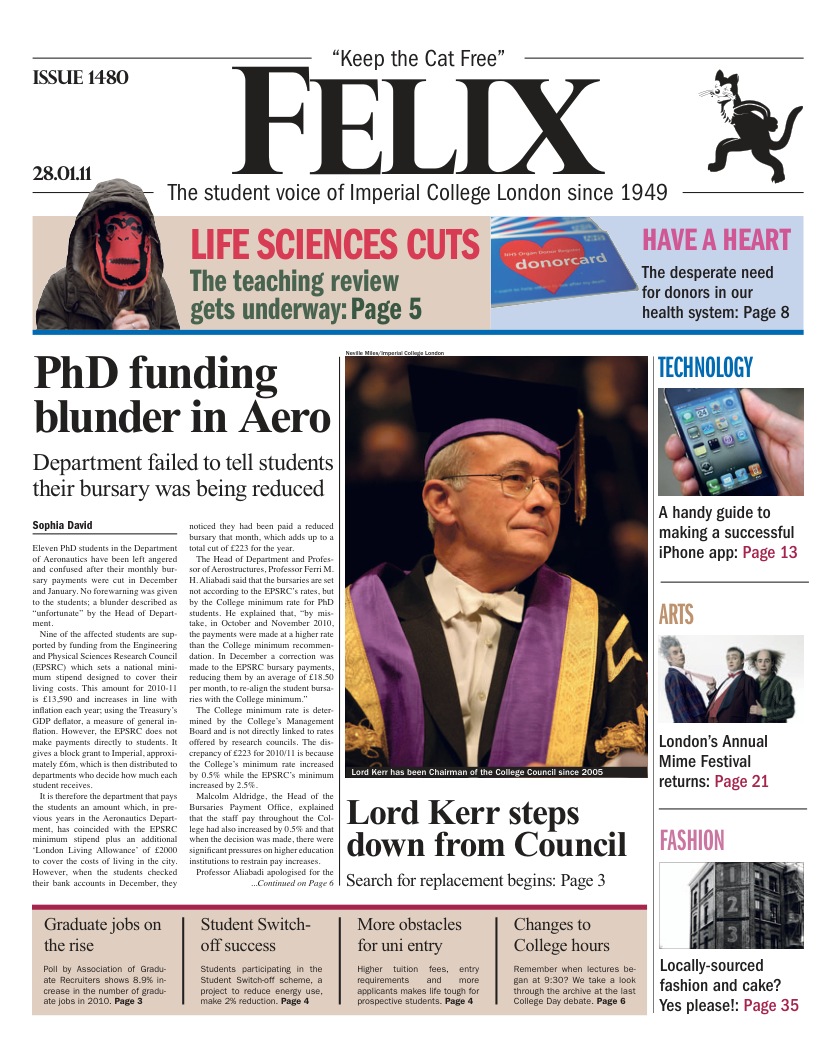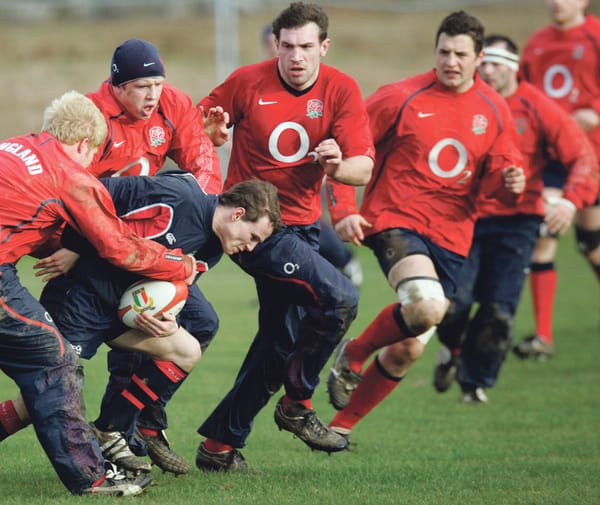Life Sciences teaching review
Details about the teaching review finally emerge but the review panel is criticised for not allowing enough time for staff and student questionnaire responses

The long-awaited review of teaching in the Department of Life Sciences has finally been opened to staff and student input. The review panel, led by Professors Murray Selkirk and Andy Purvis, aims to submit its recommendations to the Science Studies Committee in late April, after an initial period of consultation in January and a follow-up period in March. However, opponents of the staff cuts in the Life Sciences Department have criticised the panel for not offering enough time for student submissions in the initial consultation and for a general lack of information about the on-goings of the review.
As previously reported by Felix, Head of the Life Sciences Department Professor Ian Owens confirmed at a public meeting last December that the teaching review would be held in January, with the aim of improving teaching, aided by additional student input. Up until now, however, there has been little information released about the review. Professor Owens failed to respond to an email enquiring about the review in early January whilst Union President Alex Kendall claimed that the department has left the Union out of the loop: “There has also been no attempt to include the Students’ Union in this review so far.”
Staff within the department have also felt left in the dark. One staff member, who wished to remain anonymous, told Felix that he “had absolutely no idea” how the review was proceeding.
Professors Selkirk and Purvis have sought to reassure both staff and students by providing Felix with an update of the situation. They confirmed that the panel had met twice already – “with considerable work being conducted by sub-groups in between” – and signalled that the next meeting of the panel would be in February after the responses to the questionnaire had been collated. In March a second consultation period will start, “during which we will be soliciting comments on our proposals.” The Review Panel will then decide which of the suggestions it wants to incorporate. The final stage of the process is the Panel’s report to the Science Studies Committee, which meets on May 17th. Professors Selkirk and Purvis told Felix that they “aim to submit [their] proposals four weeks before that date”.
The review group is made up of two co-chairs, Professors Selkirk and Purvis, seven other members of staff heavily involved in teaching (three from the Biology degree and four from Biochemistry) and a representative from the undergraduate office.
In terms of the direction and aims of the review, Professors Selkirk and Purvis told Felix that it was too early to make specific comments but that there had been “very wide-ranging discussions” and that the questionnaire would give students an indication of what the panel are discussing. They also confirmed that the panel intended for “students arriving in October 2011 [to] be the first to see the changes throughout their degrees”, but also said that they were primarily taking a long-term view.
The first sign that the review had started was on the weekend of the 22nd of January when a questionnaire was circulated to staff in the Life Sciences Department, which they were asked to complete by the 31st. The questionnaire covers a range of topics relating to degrees in the Life Sciences Department. The Union responded positively to the questionnaire saying that the “questions seem dedicated to finding out a wide range of aspects of the undergraduate degree.” But one member of staff, aforementioned, was less impressed by the range of questions calling it “bland” and said that it only requested “vague opinions on what is OK.”
The survey was made available on Wednesday on Blackboard for Undergraduates in the department, asking them for their opinions on the format of lectures, classes and tutorials and the attributes of the degree programme in general. Students have until the 31st to complete the survey. An introductory statement from Professors Purvis and Selkirk reads: “We particularly value your views now, so they can feed into the review process at an earlier stage.”
Union President Alex Kendall, a key figure behind the opposition to the Life Sciences cuts, “encouraged all undergraduates who are able to to fill it in”, but also criticized the Review Panel for offering less than a week for students to provide their opinions and comments.
“Considering the work we did on trying to spread information about the restructure I am disappointed that [the Union] has not been included,” said Kendall, “I am also critical of the lack of any reference to the restructure in the questions or in the responses from the Chairs.”
Whether further developments in the review will improve the opinions of both students and staff towards a department which has seen some severely unwanted attention as of late will depend on the careful handling of a situation that is growing ever more delicate as time passes.








